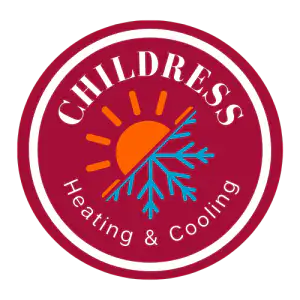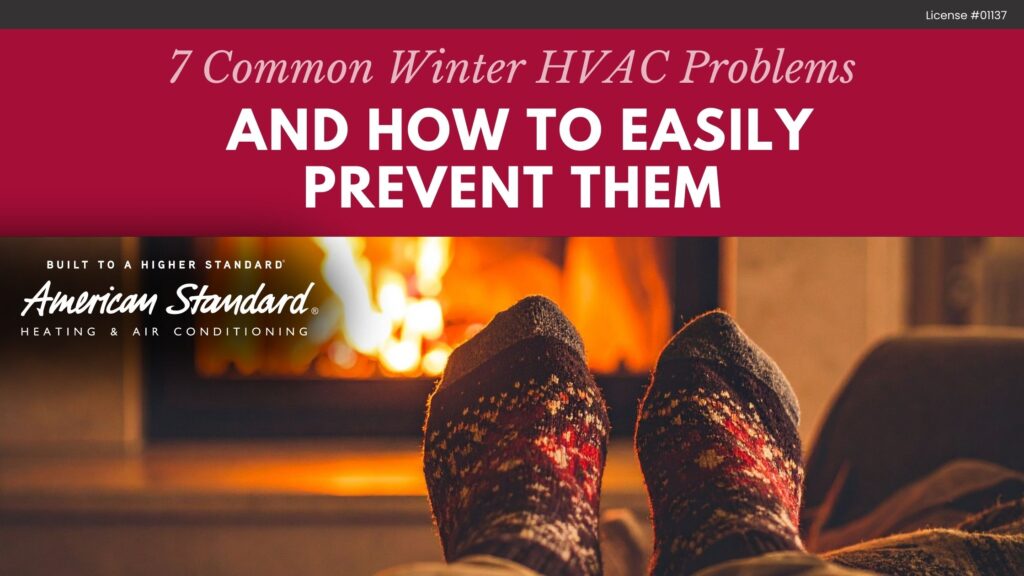7 Common Winter HVAC Problems and How to Easily Prevent Them
Winter is a time for cozy blankets, hot drinks, and spending quality time with family—but a malfunctioning HVAC system can quickly turn comfort into frustration. Homeowners across Southside, Gadsden, and Etowah County often encounter winter HVAC issues that disrupt their indoor comfort. Understanding the most common problems and learning how to prevent them can save you time, money, and stress.
In this blog, we’ll explore 7 common winter HVAC problems, explain why they occur, and share actionable steps to prevent them. By the end, you’ll have the knowledge to maintain your heating system effectively and enjoy a warm, worry-free winter.
1. Frozen or Clogged Air Filters
Problem: During winter, your HVAC system works harder to keep your home warm. A dirty or clogged air filter restricts airflow, causing your system to overwork and potentially freeze.
Why It Happens: Dust, pet hair, and debris accumulate quickly, especially if your HVAC system runs continuously during colder months.
Prevention Tips:
- Inspect and replace air filters every 1–3 months.
- Choose high-quality filters designed for your system.
- Consider upgrading to a pleated filter for better dust and debris capture.
Why It Matters: A clean filter ensures efficient airflow, reduces energy costs, and prolongs the life of your system.
2. Thermostat Malfunctions
Problem: A malfunctioning thermostat can cause uneven heating, short cycling, or prevent your system from turning on entirely.
Why It Happens: Dead batteries, faulty wiring, or outdated thermostat models are common causes.
Prevention Tips:
- Replace batteries at the start of the season.
- Upgrade to a programmable or smart thermostat for precise temperature control.
- Regularly calibrate your thermostat to ensure accurate readings.
Why It Matters: A reliable thermostat maintains consistent comfort while improving energy efficiency.
3. Pilot Light or Ignition Issues
Problem: Gas furnaces rely on a pilot light or electronic ignition. If either fails, your furnace won’t produce heat, leaving your home cold.
Why It Happens: Dirt buildup, moisture, or a malfunctioning sensor can extinguish the flame or prevent ignition.
Prevention Tips:
- Schedule annual professional furnace inspections.
- Keep the area around your furnace clean and dry.
- Ensure proper ventilation to prevent gas buildup.
Why It Matters: Maintaining a functioning pilot light or ignition ensures your home stays warm and safe.
4. Frozen or Leaking Pipes
Problem: Cold temperatures can cause water in pipes to freeze or burst, leading to water damage and costly repairs.
Why It Happens: Poor insulation, drafts, or sudden temperature drops increase the risk of frozen pipes.
Prevention Tips:
- Insulate exposed pipes in attics, basements, and crawlspaces.
- Maintain consistent indoor temperatures.
- Allow faucets to drip slightly during extreme cold to prevent freezing.
Why It Matters: Preventing frozen pipes protects your home from water damage and reduces HVAC strain caused by heating compensations.
5. Ignored Maintenance Leads to Wear and Tear
Problem: Skipping regular HVAC maintenance can lead to system breakdowns, higher energy bills, and reduced lifespan.
Why It Happens: Components like belts, motors, and coils degrade naturally but can fail prematurely without proper care.
Prevention Tips:
- Schedule professional maintenance at least once a year, ideally before winter.
- Check for unusual noises, vibrations, or odors.
- Keep vents and registers clear of furniture and obstructions.
Why It Matters: Routine maintenance ensures efficient performance, prevents costly repairs, and extends system longevity.
6. Poor Airflow Due to Blocked Ducts
Problem: Blocked or leaky ductwork prevents heated air from reaching all areas of your home, resulting in cold spots and inefficient heating.
Why It Happens: Debris, pet hair, or poor duct installation can restrict airflow.
Prevention Tips:
- Inspect and clean ducts every 3–5 years.
- Seal leaks with duct mastic or professional-grade tape.
- Ensure vents are open and unobstructed.
Why It Matters: Proper airflow improves comfort, reduces energy costs, and prevents overworking your HVAC system.
7. Refrigerant Leaks in Heat Pumps
Problem: Heat pumps rely on refrigerant to transfer heat. Low refrigerant levels cause your system to struggle, reduce efficiency, and risk freezing.
Why It Happens: Corrosion, loose fittings, or age-related wear can lead to leaks.
Prevention Tips:
- Schedule annual inspections to check refrigerant levels.
- Repair leaks immediately to prevent further damage.
- Consider upgrading an older heat pump to improve reliability.
Why It Matters: Maintaining proper refrigerant levels ensures efficient heating and prevents costly repairs.
Additional Winter HVAC Tips
- Use a Humidifier: Winter air is dry, which can make your home feel colder and irritate skin and sinuses. Adding a humidifier can improve comfort.
- Seal Windows and Doors: Drafts can force your HVAC system to work harder. Use weatherstripping or caulk to seal leaks.
- Monitor Energy Usage: Smart thermostats can help track energy consumption and identify inefficiencies.
FAQs About Winter HVAC Problems
Q1: How often should I replace my HVAC air filter in winter?
A: Every 1–3 months, depending on filter type, pets, and indoor air quality.
Q2: Can I fix a pilot light or ignition issue myself?
A: Only if you are trained and comfortable handling gas appliances. For safety, it’s best to contact a licensed HVAC professional.
Q3: How do I know if my ducts are leaking?
A: Uneven heating, high energy bills, and visible leaks around vents or duct joints are common signs.
Q4: Why is my furnace making strange noises in winter?
A: Noises can indicate loose parts, debris in the system, or failing components. Schedule maintenance to diagnose and prevent further damage.
Q5: Is it worth upgrading to a smart thermostat for winter?
A: Yes! Smart thermostats optimize heating schedules, improve comfort, and reduce energy costs.
Contact Us
Childress Heating & Cooling is your local American Standard Customer Care Dealer serving Southside, Gadsden, and Etowah County communities for over 20 years. If your home’s comfort system needs attention, or if you believe you might need a new HVAC system, call us or visit our website. We’re proud to be our community’s #1 choice when it comes to heating and cooling.
Phone: (256) 312-1893
Email: [email protected]
Website: Childress Heating & Cooling
Follow Us on Social Media:
- Facebook: Childress HVAC
- Instagram: @childresshvac
- Pinterest: Childress Heating and Cooling

